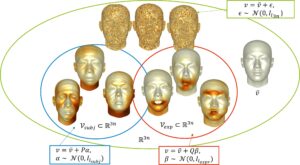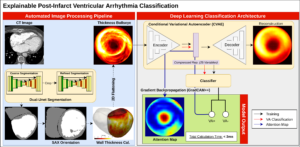PhD seminar – 27th, june 2022
Buntheng Ly – Université Côte d’Azur
Title: Exploring The Relationship Between Left Ventricular Wall Thinning And Post-infarction Ventricular Arrhythmia Using Explainable Deep Learning On Computed Tomography Images
Abstract: The sudden cardiac death (SCD) is a major health concern in the developed country accounted for up to 400 000 deaths annually in Europe, as well as the United State. The studies have shown that ventricular arrhythmia (VA) is the phenomenon most frequently occurred leading up to the SCD.
Melissa Antonelli – University of Bologna
Title: Randomized proofs-as-programs
Abstract: The so-called Curry-Howard correspondence defines one of the most intriguing
interactions between logic and programming language theory.  In the minimal
In the minimal
form, it relates intuitionistic propositional logic and the simply-typed λ-calculus,
but, in the last decades, has been generalized in several ways. I present a joint
work with U. Dal Lago and P. Pistone, the main contribution of which consists in
extending this result to the probabilistic framework. We provide a correspondence
between an intuitionistic version of counting propositional logic, and an expressive
type-system for the probabilistic event λ-calculus, in which both CbV and CbN
evaluation of discrete randomized functional programs can be simulated. In this
context, proofs (typing) do not guarantee validity (termination), but reveal the
underlying probability.
PhD seminar – 13th, june 2022
Florent Jousse – team EPIOME, Inria Sophia-Antipolis
Title: How to train face morphable models with non-intersecting subspaces?
 Abstract: This presentation shows how to learn deformation spaces for 3d face meshes. Typically, a first deformation subspace encodes the possible identity changes while another encodes the possible facial expressions. It has been proposed to jointly use two Principal Component Analyses (PCA) to find these subspaces. PCA chooses the basis vectors pointing in the direction of maximum variance when the input shapes are transformed in these low dimensional subspaces. However, PCA produces an intersection between the subspaces for expressions and identities. The problem with this intersection is that modifying facial expressions will also modify the person’s identity and limit such models’ usefulness. Therefore, we formulate an optimization problem penalizing subspaces’ orthogonality. Then, we propose an iterative procedure to solve this problem. Our approach ensures a quasi-orthogonality between the subspaces and improved facial attributes and expressions manipulations of existing models.
Abstract: This presentation shows how to learn deformation spaces for 3d face meshes. Typically, a first deformation subspace encodes the possible identity changes while another encodes the possible facial expressions. It has been proposed to jointly use two Principal Component Analyses (PCA) to find these subspaces. PCA chooses the basis vectors pointing in the direction of maximum variance when the input shapes are transformed in these low dimensional subspaces. However, PCA produces an intersection between the subspaces for expressions and identities. The problem with this intersection is that modifying facial expressions will also modify the person’s identity and limit such models’ usefulness. Therefore, we formulate an optimization problem penalizing subspaces’ orthogonality. Then, we propose an iterative procedure to solve this problem. Our approach ensures a quasi-orthogonality between the subspaces and improved facial attributes and expressions manipulations of existing models.

